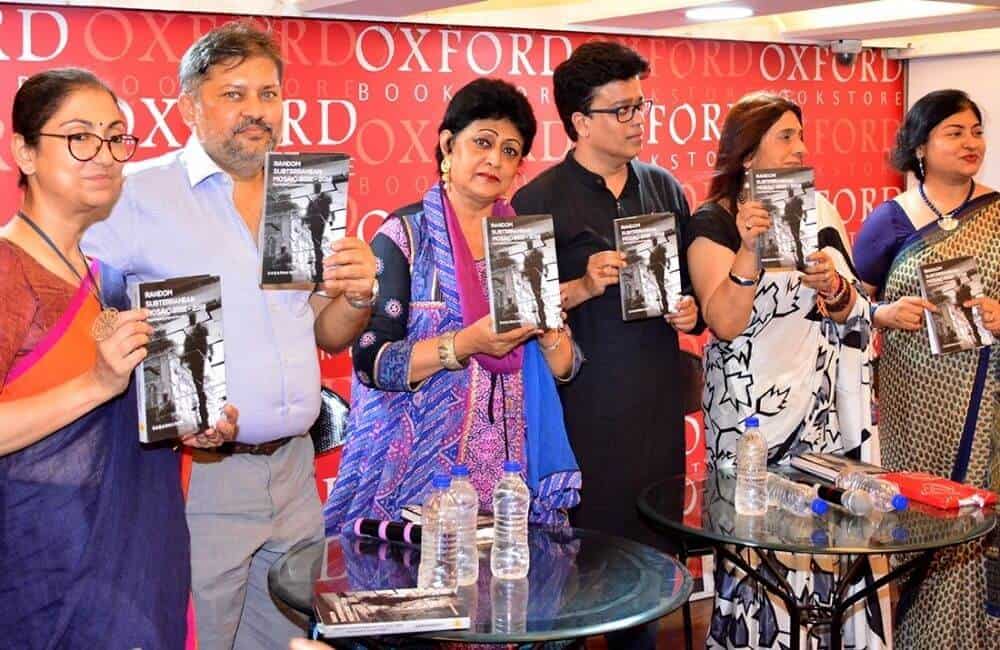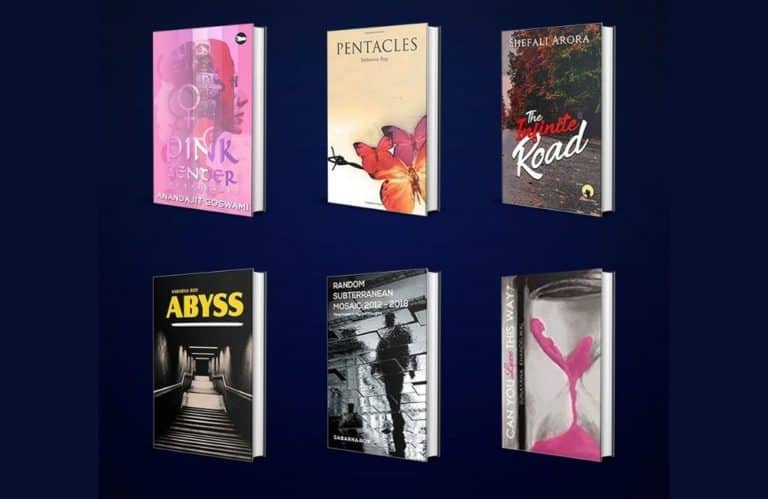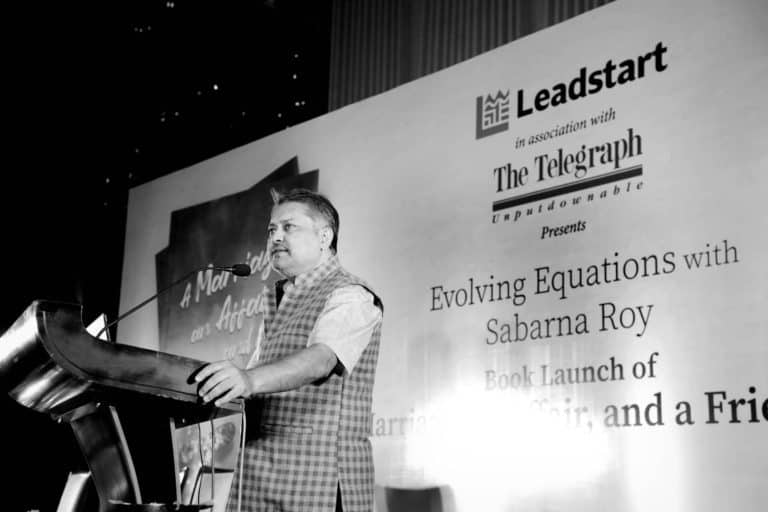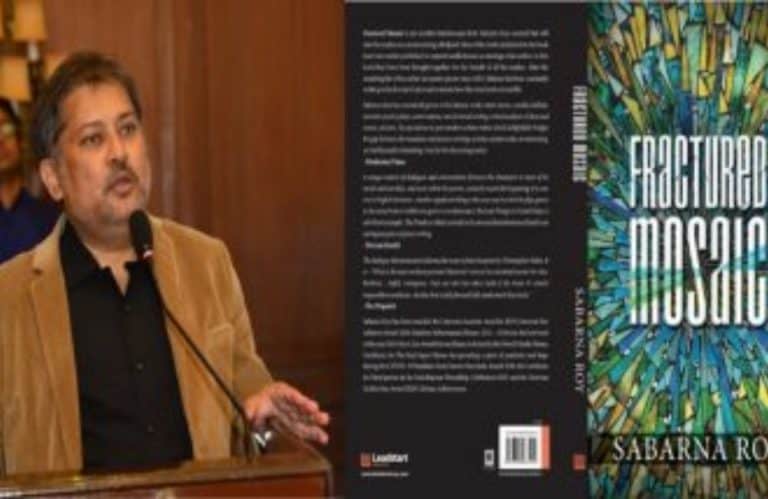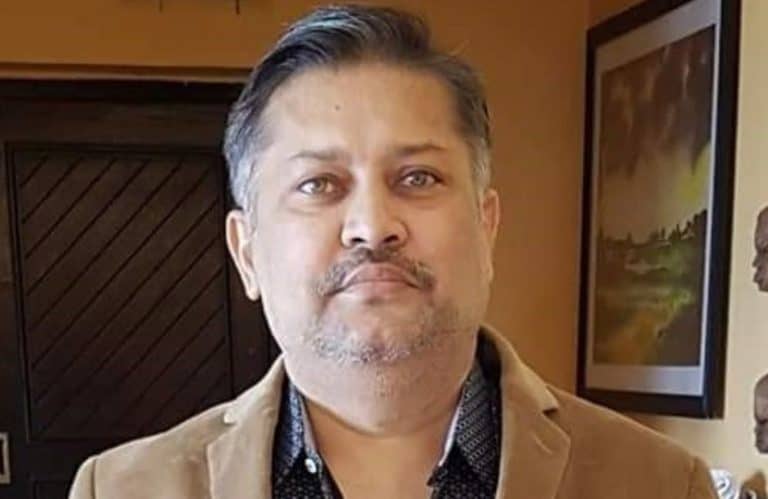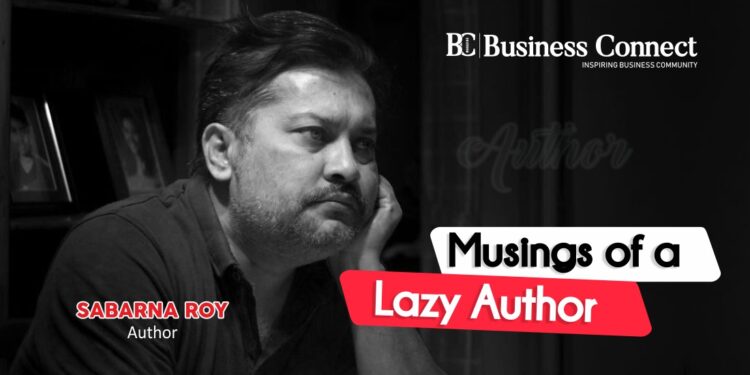Transient Musings and Journal Entries of a Lazy Author – Sabarna Roy
Sabarna Roy is a much awarded, critically acclaimed bestselling author of 6 literary books: Pentacles; Frosted Glass; Abyss; Winter Poems; Random Subterranean Mosaic: 2012 – 2018, and Etchings of the First Quarter of 2020. He is the lead author of a technical book, which has been published from the European Union and has been translated into 8 major European languages.
He has been awarded the Literoma Laureate Award in 2019, Literoma Star Achiever Award 2020, Random Subterranean Mosaic: 2012 – 2018 won the best book of the year 2019, the A List Award for excellence in fiction by the NewsX Media House, Certificate for The Real Super Heroes for spreading a spirit of positivity and hope during the COVID-19 Pandemic from Forever Star India Award 2020, the Certificate for Participation in the Indo Russian Friendship Celebration 2020, and the Literoma Golden Star Award 2020: Lifetime Achievement.
1.My school’s – Sacred Heart Convent School, Ludhiana, Punjab – left aerial view of its main entrance and emblem showcase its beauty. I passed out my Standard X (CBSE) Examination in the year 1982 from this wonderful school and thereafter we came back and settled in Calcutta. From the front entrance view, it will not be clear to the onlooker how majestic the school was (and, must be is) with its two large playgrounds, one playground dedicated to the kindergarten section, one tennis court, one badminton court, a hostel and a cathedral, and a series of buildings to house at least two thousand students with a fully-built auditorium (which also included a balcony). After 1982, I returned to Ludhiana in 2003 (a gap of twenty-one years) during the winters for a night with my son to show him my school. In the densely foggy and chilly night I could see the pangs of jealousy on my infant son’s face simmering (comparing as he would naturally with his own school in a congested city like Calcutta) as the brilliant hugeness of my school exploded before his eyes. He was awestruck. Until then, when I would tell him stories of the magnificence of my school he would not believe them however authentic or detailed I sounded. Post 2003 I have never gone to Ludhiana.
Today I was going through the various photographs of my school and all of a sudden felt a strange biting sensation of nostalgia, which has always remained dormant in my soul ever since 1982. The school emblem used to be stitched to our crimson coat pockets, which we wore during the winters. My red school coat was preserved by my mother for many, many years and my son has also worn this coat out of sheer joy and fun. Although there is no eternal return in life, but your life does come back to you in bits and patches randomly. And then you know you have travelled far and wide in life …
Melancholy also originates out of your inability to visit your school whenever you wish to.
The Annual Exhibitions in our school used to be a grand affair. The entire school covering all the disciplines would participate in the event. In the 1980 Exhibition I along with two of my friends had constructed the house in which Shakespeare lived, modelled on a painting published in the Reader’s Digest. I also acted in a portion (that was being done as an introduction to Shakespeare’s works) of The Merchant of Venice as Shylock and was additionally the guide for all the visitors to the English Literature room. As far as I remember I had also collaborated on a Physics experiment with a few of my friends. It was a major hit. When I visited Stratford-upon-Avon from London to see the place where Shakespeare lived I was amazed by the actual house whose model we had built as children and come very close to it.
2.The only mandate a writer has is, to puncture the holy curtain and show us the universe beyond it.
3.Two novellas that I have finished within a reading time span of three hours are: Up at the Villa by Somerset Maugham and The Reluctant Fundamentalist by Mohsin Hamid. I have read both these books in the year 2007.
Up at the Villa – “The Princess gave him another of those quiet smiling looks of hers in which there was the indulgence of an old rip who has neither forgotten nor repented of her naughty past and at the same time the shrewdness of a woman who knows the world like the palm of her hand and come to the conclusion that no one is any better than he should be.”
Chapter 2, Page 29.
The Reluctant Fundamentalist – “Four thousand years ago, we, the people of the Indus River basin, had cities that were laid out on grids and boasted underground sewers, while the ancestors of those who would invade and colonize America were illiterate barbarians. Now our cities were largely unplanned, unsanitary affairs, and America had universities with individual endowments greater than our national budget for education. To be reminded of this vast disparity was, for me, to be ashamed.” Changez in Chapter 3.
4.Doctors always want me to eat less of eggs. But eating steamed rice with spicy Bengali egg curry is a delightful experience, which I want to savor very often.
In matters of content and styling of cuisine I think none can beat the traditional Bengali cuisine on a Sunday winter late afternoon followed by a spell of siesta under a quilt from Jaipur.
5.Handwriting, which is a great anthropological trait, is on the verge of extinction. We have all adopted the digital way long back irreversibly and can do nothing about it. It has had a deep impact on how we think. The handwritten text arouses very different sensations in our souls than the digital text for the writer as well as the reader. Handwriting excites imagination in personal communication in a manner the digital text cannot. For the writer handwriting does not give him the feeling of satiation the digital text easily does and therefore forces him to labor harder, go deeper and become more intense. The era of attaching significance and mystery to individual handwritings is gone.
6.All of us carry the burden of deceit and lies, on our conscience, of our day-to-day lives. He/she who says otherwise is a liar, which in any case all of us are. When we can unburden the baggage finally to somebody we can trust we feel light as a feather. The process of finding the person to whom we can unburden / confess our mosaic of deceit and lies especially for the non-believer (like me) is very complex, intriguing and probabilistic. The burden is heavy and unbearable at times. Most of the times we never get to find that person and die with the burden ripping our souls.
Is individual breach of trust/faith a crime? I am not talking about all kinds of individual breaches: there are some breaches, which can adversely alter the universe of somebody’s life. And there are breaches with which one should not (very cautiously) attach oneself – rather ignore – for one should know betrayal is pathologically at the very core of human consciousness. The higher degree of individual breaches can arguably be classified as crime.
Sometimes, the person for whom you would take a bullet ends up being the one behind the gun.
Betrayal originates out of a sensation of power and satiation of lust and/or greed. Betrayal in return gives one power and one becomes an explicit or a strategic bully over a period of time.
Individual betrayals most of the times go unpunished. There can be, of course, no conceivable/implementable punishment mechanism for individual betrayals. The only recourse to redemption for the betrayed is the natural justice granted by ‘destiny’, which by the way does not exist.
Yet each man kills the thing he lovesBy each let this be heardSome do it with a bitter lookSome with a flattering wordThe coward does it with a kissThe brave man with a sword- Oscar Wilde, The Ballad of Reading Gaol
7.Manmarziyaan is styled wonderfully, narrated with a magical pace and gusto; the music is electrifying; but the story remains within expected quarters; the performances are electrifying. Saratbabu wrote Swami in the early part of twentieth century and on it in 1977 Basu Chatterjee made a wonderful film. Then came Hum Dil De Chuke Sanam, which looked forced but was loosely based on the essence of Swami. Now, it is Manmarziyaan. Which, I feel is not very far from Swami.
What is the story of Swami?
Swami is set in Bengal around the 1900s – possibly before the Sarda Act of 1929 that restricted, if not prohibited, the practice of child marriage. Thanks to a forward thinking agnostic maternal uncle, 19-year-old Soudamini (the name means lightning) is still a college student. Influenced greatly by her uncle, she learns to value literature and logic over the rituals and traditions favoured by her widowed mother. Adding to her mother’s displeasure, Soudamini develops an intimacy with Naren, a rich neighbour’s educated son.
Fate takes over. Soudamini’s uncle dies suddenly of a heart attack and Soudamini is married off to Ghanshyam, a middle-aged widower from a neighbouring village. Ghanshyam is a wheat dealer, as far from reading Hardy and Tolstoy as Soudamini is from coping with Ghanshyam’s bloodsucking brood – his stepmother, her widowed daughter and her much fussed over married son, Nikhil.
Even six months later, the tittered truth is that Soudamini does not sleep with Ghanshyam and that Ghanshyam, the chief bread winner of the family, is still trying to appease his petulant young wife. A lesser known truth is that Soudamini is learning to respect her mild mannered husband who sees the meanness in his family but does not succumb to it.
Out of the blue, Naren arrives at Ghanshyam’s house as Nikhil’s guest. At an ill-timed moment, he is caught in the act of kissing Soudamini’s hand through the bars of a low window. Embarrassment for the one-time lovers is followed by a humiliating showdown for Soudamini in Ghanshyam’s absence. Naren makes a hasty exit but returns a few days later to whisk Soudamini away. A week of confused and surprisingly sexless struggle ensues in a small room that Naren rents. When Ghanshyam learns of Soudamini’s plight and whereabouts, he arrives to take her back home. There are no no accusations, no insinuations and no questions. Even after her foolhardy transgressions, Ghanshyam is ready to accept Soudamini as his wife.
The story is narrated in first person by the guilt-ridden Soudamini speaking of herself being not as brilliant or beautiful as lightning but just as destructive.
Surprisingly, even Anurag Kashyap could not think outside the boundaries of what Saratbabu wrote possibly 100 years back. Do characters have to make choices perforce at the end of films and stories? I think, no. Characters can remain to stay confused and delay choices. That could have been the correct post-modern ending to Manmarziyaan. But Anurag Kashyap, I am a great fan of his art, falls into the familiar trap.
8.Life is a possibility in continuum. Your attachment to arts, culture and science is your victory in life. You can live like an island reading, watching and listening using technology. It does not matter for the remaining years. Your story is not unique. Almost everybody is experiencing a violent and turbulent nervous life. There is no panacea but to withdraw within. It is nothing but a loose conglomeration of human islands in the end!
Source: apnnews.com

